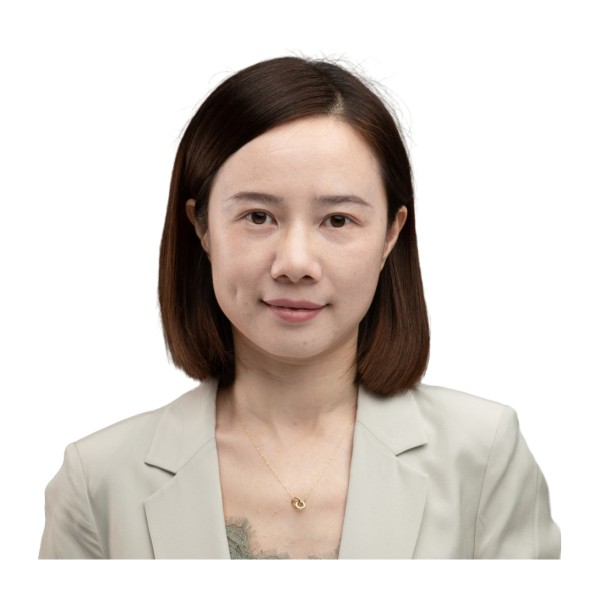We are chemical biologists and protein or antibody engineers. We design molecules, decipher life's mysteries, and drive the next wave of therapeutic innovations!
We work at the interface of chemistry and biology. Our research aims to understand how protein post-translational modifications (PTMs), and the enzymes involved contribute to cell signaling in diseases and immune regulation, and how these PTMs, enzymes, enzymatic reactions, and related cellular processes can be exploited for targeted therapy. To achieve this, we use cutting-edge techniques from chemical biology, biochemistry, protein engineering, and synthetic biology.
Our particular interest lies in exploring what is happening on the surface of cells in the tumor microenvironment (TME). The cell membrane is a complex and dynamic environment through which cells interact with each other and respond to different stimuli. Membrane proteins, comprising around a quarter of all human proteins, play a crucial role in various biological processes such as transporting, signaling, and catalysis. The dynamic membrane and extracellular environment are often altered through protein PTMs. These modifications lead to the changes in protein function and all kind of mechanistic outcomes. Dysregulation of these PTMs is associated with cancer progression and adverse immune regulation, making them a significant area of focus in our research.
Our work focuses on three main objectives:
- Developing new technologies to identify and study protein PTMs and their associated enzymes in cellular environments at molecular, cellular, and systems levels.
- Discovering new chemical and biological phenomena or mechanisms that lead to pathological phenotypes and using this knowledge to guide the development of next-generation immunotherapies.
- Engineering small molecules (i.e., peptides) and biologics (i.e., proteins, enzymes, antibodies, and cells) to improve our understanding of diseases and to develop novel therapeutics.
We employ a range of techniques, including synthetic chemistry, proteomics, functional genomics, and protein/antibody/cell engineering. We also use different combinatorial selection technologies such as phage/yeast/cell/virus display, coupled with NGS and bioinformatics. By integrating diverse perspectives and techniques, we aim to advance our understanding of human diseases and inform the design of the next-generation immunotherapy.
Nanjing University
BS
2012
Brandeis University
PhD
2017
UCSF
Postdoc Fellow
2023
University of Chicago
Assistant Professor
Lim, AS.*, Zhou, J.*, Martinko, JA., Wang, Y., Filippova, E., Remesh, GS, Liu, J., Leung, KK., Kossiakoff, AA., Evans, JM., Wells AJ. 2022 Targeting a proteolytic neo-epitope for RAS-driven cancer. J. Clin. Investig. 132(4) e154604. (* contributed equally, cover & highlighted)
Zhou, J., Li, S., O’Donovanc, B., Zhou, JY., d, DeRisi, J., Wells, J. 2020 Deep profiling of protease substrate specificity enabled by dual random and scanned human proteome substrate phage libraries. Proc. Natl. Acad. Sci. U.S.A. 117 (41) 25464-25475.
Zhou, J., Schaefer, K., Remesh,S., Wells AJ. 2022 A general approach to discover conformational epitope-directed binders for selective inhibition of protein proteolytic activation (BioRxiv, doi: https://doi.org/10.1101/2022.10.24.513434)
Zhou, J., Du, X., Chen, X., Wang, J., Zhou, N., Wu, D., Xu, B. 2018 Enzymatic Self-Assembly Confers Exceptionally Strong Synergism with NF-kB Targeting for Selective Necroptosis of Cancer Cells. J. Am. Chem. Soc. 140: 2301-2308.
Zhou, J., Du, X., Chen, X., Xu, B. 2018 Adaptive Multifunctional Supramolecular Assemblies of Glycopeptides Rapidly Enable Morphogenesis. Biochemistry 32: 4867-4879.
Zhou, J., Du, X., Berciu, C., Signore, S., Yamagata, N., Rodal, A., Nicastro, D., Xu, B. 2017 Cellular Uptake of A Taurine Modified, Ester Bond Decorated D-Peptide Derivative via Dynamin Dependent Endocytosis and Macropinocytosis. Mol. Ther. 26: 648-658.
Zhou, J., Du X., Wang, J., Yamagata, N., Xu, B. 2016. Enzyme-Instructed Self-Assembly of Peptides Containing Phosphoserine to Form Supramolecular Hydrogels as Potential Soft Biomaterials. Front. Chem. Sci. Eng. 4:509-515
Zhou, J., Li, J., Du, X., Xu, B. 2016. Supramolecular Biofunctional Materials. Biomaterials. 129: 1-27
Zhou, J., Du, X., Gao, Y., Shi, J., and Xu, B. 2014. Aromatic-Aromatic Interactions Enhance Interfiber Contacts for Enzymatic Formation of a Spontaneously Aligned Supramolecular Hydrogel. J. Am. Chem. Soc.136: 2970-2973
Zhou, J., Du, X., Berciu, C., He, H., Shi, J., Nicastro, D., and Xu, B. 2016. Enzyme-Instructed Self-Assembly for Spatiotemporal Profiling of the Activities of Alkaline Phosphatases on Live Cells. CHEM1: 246-263
Zhou, J., Du, X., Li, J., Yamagata, N., and Xu, B. 2015. Taurine Boosts Cellular Uptake of Small D-Peptides for Enzyme-Instructed Intracellular Molecular Self-Assembly. J. Am. Chem. Soc.137: 10040-10043
Zhou, J., Du, X.W., and Xu, B. 2016. Regulating the Rate of Molecular Self-Assembly for Targeting Cancer Cells. Angew. Chem., Int. Ed.55: 5770-5775
Zhou, J., Du, X., Yamagata, N., and Xu, B. 2016. Enzyme-Instructed Self-Assembly of Small D-Peptides as a Multiple-Step Process for Selectively Killing Cancer Cells. J. Am. Chem. Soc.138: 3813-3823
Zhou, J., Du, X., and Xu, B. 2015. Prion-like nanofibrils of small molecules (PriSM): A new frontier at the intersection of supramolecular chemistry and cell biology. Prion9: 110-118
Zhou, J., O’Keeffe, M., Liao, G., Zhao, F., Terhorst, C., and Xu, B. 2016. Design and synthesis of nanofibers of self-assembled de novo glycoconjugates towards mucosal lining restoration and anti-inflammatory drug delivery. Tetrahedron72: 6078-6083
Zhou, J., and Xu, B. 2015. Enzyme-Instructed Self-Assembly: A Multistep Process for Potential Cancer Therapy. Bioconjugate Chem26: 987-999
Cancer Research Foundation Young Investigator Award
2024 - 2025
NIH Ruth L. Kirschstein National Research Service Award
2018 - 2021
Kenneth Rainin Foundation Travel Award, Kenneth Rainin Foundation
2014
Ruth L. Kirschstein National Research Service Award for Individual Postdoctoral Fellowship
Howard Hughes Medical Institute (HHMI) International Student Research Fellowship
2014 - 2017
Kenneth Rainin Foundation Travel Award
2014
